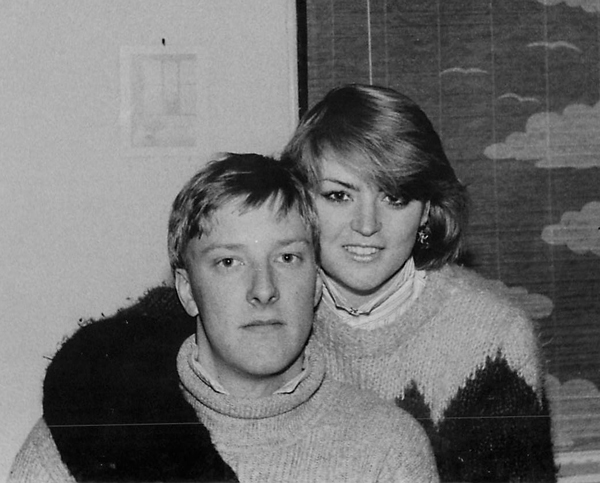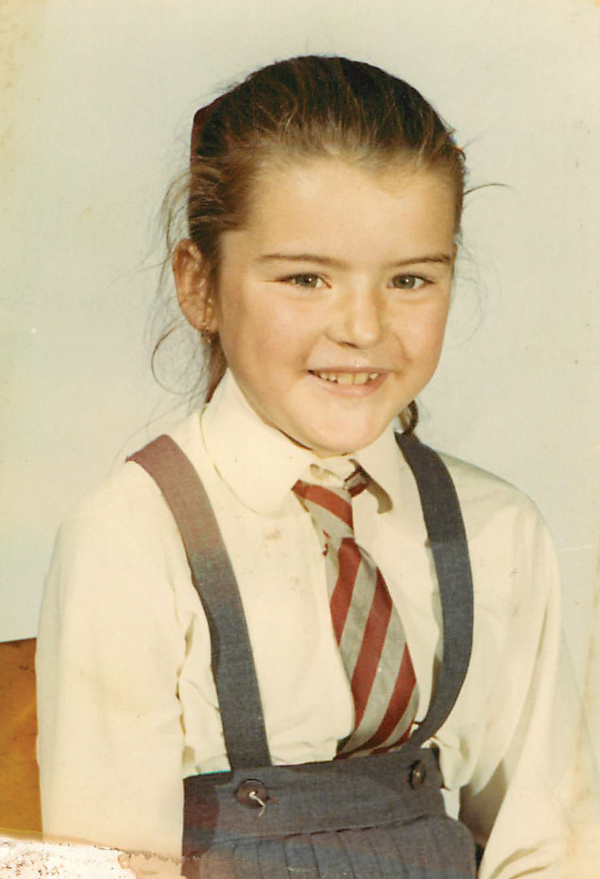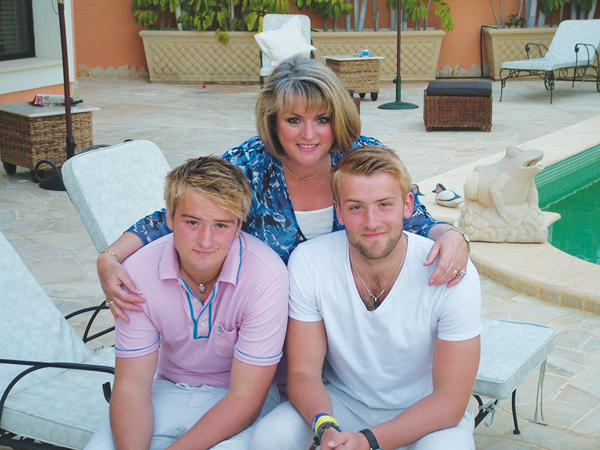Kate Dethridge became a dame at the start of this year – but she was nearly the last person to find out.
For starters, the vital letter from the Cabinet Office went to her old house where, luckily, the new resident thought it looked significant enough – it said “important” on the envelope – to pass on to Dame Kate’s husband, Rod.
He, however, left it in his briefcase for two weeks before finally handing it over to her last December. “I thought he said it’s from the tax office and I said ‘If they want any more money…’
“That is my husband! If it had been the other way round I would have opened it. But no!”

Rod, a teacher in the independent sector, was instrumental in her becoming a teacher. The couple met at Durham University where he was in the year above.
He later applied to do a PGCE “to play another year’s university sport”, Kate says, “and because I was living with him and a few other people who were doing PGCEs, I just fell into it. I said I’ll do it for a year or so, because it gives me the chance to decide what I really want to do. I still haven’t decided what I really want to do.”
Open and warm, her abilities as a leader and communicator shine through. Where did that strength of character come from? “My mum . . . she was incredibly capable. She worked only in the home. She never had the confidence to get a job out of the home.
“In some ways she was a great influence because I thought as I was growing up I mustn’t be like that. I’ve got to be a little more confident and have a go at doing things. I have a brother, Mike, who is 12 years older than me. He was the first of our family to go off to university and he gave me the aspiration.”
“It’s important to remember what it feels like to be a bad learner”
She was incredibly homesick for her Essex home during her first term at university. “I had a lot of letters from him saying you have to get on with it because it’s important and it will make a difference.”
She put in to transfer to a place at King’s in London. “I was a real homebird – so what possessed me to think that Durham was a good idea? But it was the making of me, without a doubt.” She stayed put.
Her father had been a pilot in the Second World War. “He was someone who was also quite aspirational. We all had a great work ethic from mum and dad.”
The youngest of four, she says she had a “fairly sheltered upbringing”. She went to an all-girls’ school, which she loved. “When you are surrounded by nuns who do everything, it gives you a fabulous vision of what women are capable of.”

She says she “wasn’t naturally clever” but always worked hard. “I was very organised and I wanted to be in control of things.” When she got to the sixth form, one teacher, Mr Collett, stood out. “He was a classics teacher and I really liked his lessons. He was a good bloke with a sense of humour.”
There have been no regrets about that move into teaching. She was given a fellowship from the National College of School Leaders in 2011, and part of that funded a leadership course. She opted to do hers at the London Business School.
“I was surrounded by amazing industrialists and people who ran oilfields in Russia – all sorts of interesting people, including an arms dealer.
“Working with them I suddenly thought that I am the luckiest person in the world. You are all chasing satisfaction though money and profit, and I’ve got this most amazing job. So many of them were slightly envious of my levels of satisfaction.
“Although I’d always thought I kind of sleepwalked into teaching, I don’t think it was as simple as that. There was something that attracted me into working with people and influencing them.
“I came away from that course thinking I was so lucky. I haven’t got a new Mercedes every year, but I’m much more content than any of the people I met.”
Which role has she enjoyed the most? She says it would have to be her current one at Churchend School, a primary academy in Reading, “because I’ve got such an emotional attachment to it”.
She says that if she accepted that she had any great talent, it would be for picking good staff. “Of course if you do that then the job becomes so much easier.”
Churchend has high aspirations for the children academically. “People here recognise that education is a great door to better things. We recognise we have a responsibility to help children find things they are really good at and find things they are going to have a passion for, hopefully for the rest of their lives.”
She strongly believes that there has to be a curriculum that appeals to everyone. “My former deputy head and I went to a regional question time and she was petrified of being asked something. There are children who feel that every lesson of every day. It’s so important we remember what it feels like to be a bad learner or an under-confident learner. It’s about how we can adapt the curriculum to support those children.”
Churchend, judged outstanding by Ofsted, is designated as a teaching school. “We act as the hub. It’s about offering expertise and support. For example, we will talk to other schools locally, ask them what sort of staff development they would like and we will organise and run that for them.”
As a member of Ofsted’s headteacher reference group, she feeds in views from staff and highlight issues or concerns. She welcomes the move to bring inspection in-house. “They have asked people to apply to become inspectors again and I understand the bar is quite high to ensure the right high calibre.

“They are going to be looked after more closely now by Ofsted and I think the new framework, certainly around the inspection of good schools, sounds quite exciting because it is going to be more of a partnership. Which is what we all want really.”
With so many roles, how does she find time to relax? “I see lots of the children.” Tom is 23 and working in London and Will is 20 and studying biology at university. The family has a place in Ireland, too, and “we do a bit of travelling and I love cooking”.
It’s clear she relishes all her jobs, within and outside Churchend. “It’s a real privilege to be part of something bigger than one’s own school. I meet lots of excellent practitioners.
“But last week I taught a science lesson for someone and I got as much excitement out of that as of going to an Ofsted meeting. No two days are ever the same. You could never say you are bored in a school.”
IT’S A PERSONAL THING
What was your favourite childhood toy?
A Pelham puppet of Ermintrude, the Magic Roundabout cow. I’ve still got it.
Who were or are your mentors, and why?
My husband Rod. Over the past 33 years he’s been the most extraordinary support, offering encouragement, advice and admonishment. I couldn’t have achieved anything without him. Also Roy Blatchford, an HMI who has helped me to challenge long-held orthodoxies and believe that things can and will get better for children. And Jenny Hill, my dear friend and deputy head for 17 years. She got me through some incredibly tough times and can make me laugh like almost no one else can.
What are the two best pieces of advice you’d pass on?
Don’t ever forget that the children are what’s important. We are servants of the community. Ask yourself what decision you would make if you weren’t scared.
What are the first things you would save from a fire (after the people, of course)?
Family photos and letters from my parents who are sadly no longer with me. They gave me the most perfect childhood and really valued education because they saw it as the route to improving life chances. It’s no coincidence that three out of four of their children went into education.
How would you spend an ideal day?
With my family in the most beautiful place in the world, Aghada in Cork, Ireland, walking on unspoilt beaches – then meeting relatives for a catch-up over a cuppa.













Your thoughts